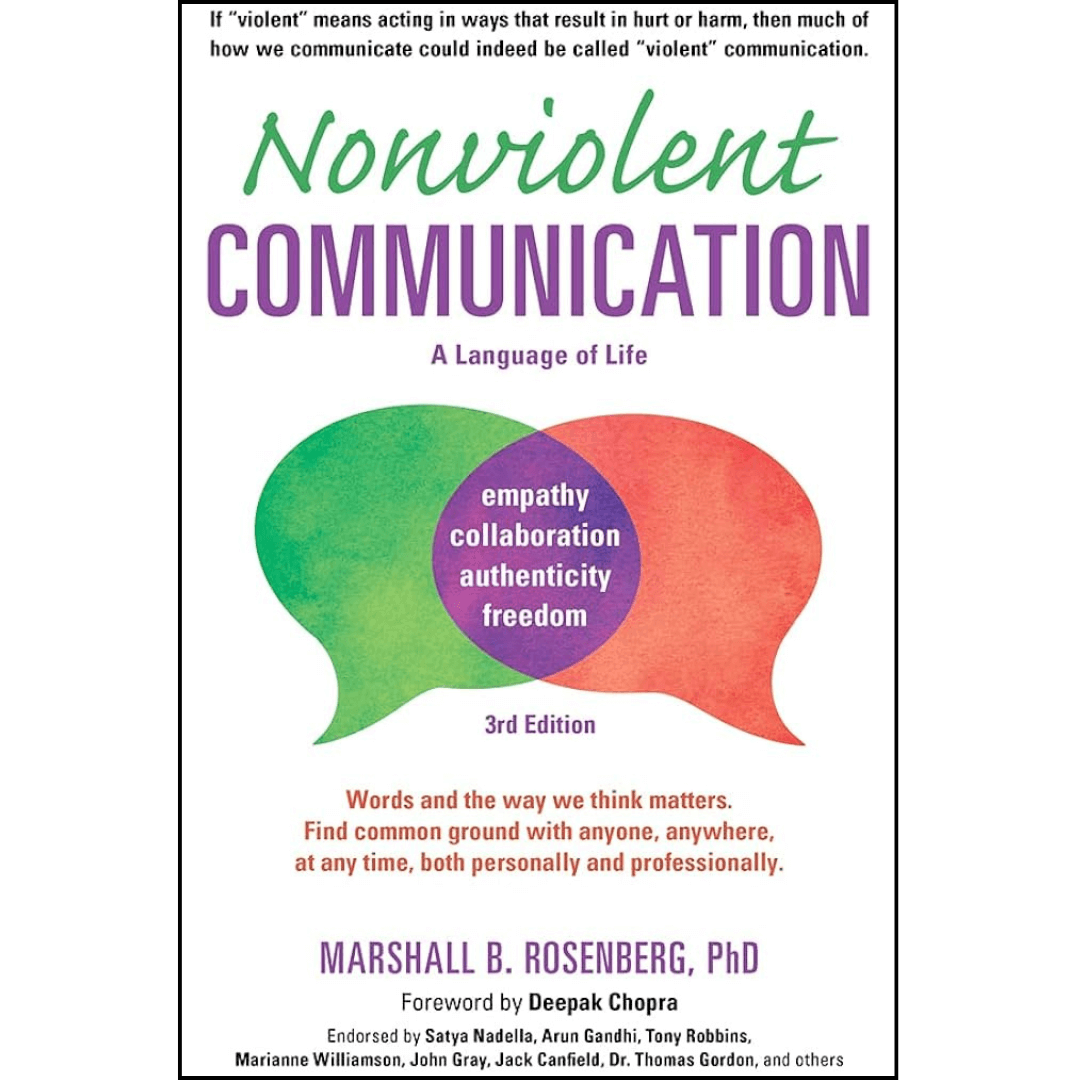Book Summary of Nonviolent Communication

Unlocking Empathy: Nonviolent Communication Book Summary
Nonviolent Communication (NVC), authored by Marshall B. Rosenberg, is a groundbreaking guide that offers a transformative approach to communication & conflict resolution. Published in 1999, this book has since become a cornerstone in interpersonal relations, fostering empathy, understanding, and cooperation. In this book summary, we delve into the core principles of NVC, exploring how it can revolutionize the way we interact with others and navigate conflicts.
Understanding Nonviolent Communication:
Nonviolent Communication is more than just a communication technique; it’s a philosophy rooted in compassion & empathy. At its core, NVC emphasizes four key components: observation, feelings, needs, & requests. By cultivating awareness of these elements, individuals can communicate more effectively & peacefully.
Observation:
The first step in NVC is making objective observations without judgment or evaluation. Instead of labelling or criticizing, practitioners of NVC describe the facts of a situation neutrally. This practice encourages clarity & reduces the likelihood of misunderstandings.
Feelings:
Once observations are made, individuals identify & express their feelings. NVC encourages people to acknowledge & articulate their emotions honestly, fostering self-awareness and emotional intelligence. By expressing feelings without blame, individuals can create a safe space for authentic communication.
Needs:
Central to NVC is the recognition of universal human needs. By identifying & acknowledging our own needs, as well as the needs of others, we can cultivate empathy & understanding. NVC teaches individuals to prioritize needs over demands, seeking mutually beneficial solutions that honour everyone involved.
Requests:
In the final step of NVC, individuals make clear, actionable requests that align with their needs. These requests are specific, realistic, & respectful, inviting collaboration and cooperation. By framing requests positively & constructively, individuals can foster goodwill and strengthen relationships.
Application of Nonviolent Communication:
Nonviolent Communication can be applied to various aspects of life, from personal relationships to professional settings. In conflicts, NVC enables individuals to express themselves authentically while remaining open to the perspectives of others. By fostering empathy & understanding, NVC facilitates constructive dialogue and problem-solving.
In personal relationships, NVC promotes intimacy and connection by encouraging vulnerability and active listening. By practising empathy and compassion, individuals can deepen their bonds and resolve conflicts peacefully. In parenting, NVC offers strategies for fostering mutual respect and cooperation, creating harmonious family dynamics.
In the workplace, NVC enhances communication and teamwork by promoting a culture of empathy & collaboration. By valuing the needs & perspectives of all team members, organizations can cultivate a supportive & inclusive environment. NVC also provides tools for navigating difficult conversations, such as performance reviews or negotiations, with compassion and clarity.
Challenges and Criticisms:
While Nonviolent Communication offers valuable insights & strategies, it is not without its challenges and criticisms. Some critics argue that NVC places too much emphasis on individual responsibility, overlooking systemic issues such as power dynamics & structural inequalities. Others raise concerns about the potential for manipulation or coercion when using NVC techniques.
Additionally, implementing NVC principles can be challenging, especially in high-stakes situations or when facing resistance from others. It requires ongoing practice & self-reflection to cultivate the empathy and awareness essential for effective communication.
Conclusion:
Nonviolent Communication is a powerful tool for fostering empathy, understanding, & cooperation in all areas of life. By embracing its core principles of observation, feelings, needs, and requests, individuals can transform their relationships & navigate conflicts with compassion and integrity. While NVC may pose challenges & invite criticism, its potential for promoting peace and connection is undeniable. As we strive to build more compassionate & inclusive communities, the lessons of Nonviolent Communication remain as relevant & valuable as ever.